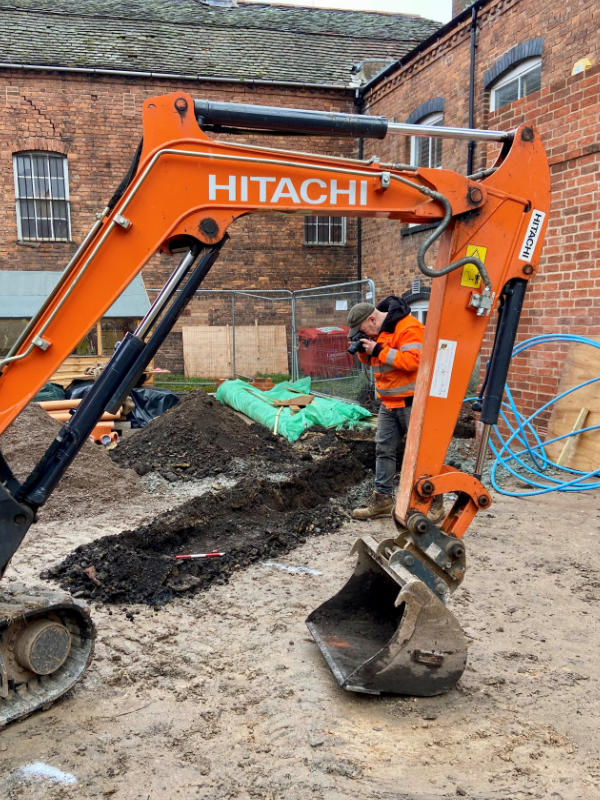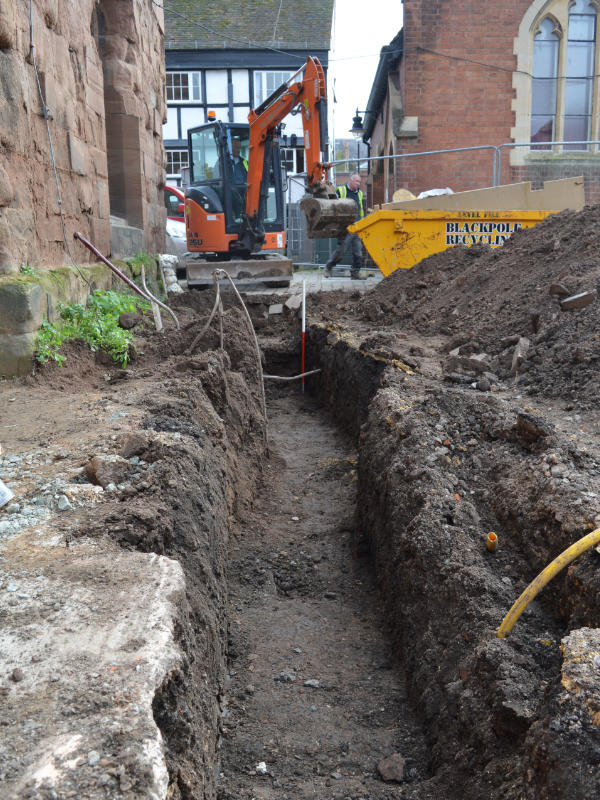Watching Brief
What is a watching brief?
A watching brief is generally required as a condition of planning permission. For this the developer will carry out their groundworks (foundations, service runs, landscaping etc.), just as they would normally, but with an archaeologist present.
The first stage of works is to prepare a Written Scheme of Investigation, which needs to be approved by the Local Authority, then it is a case of programming the archaeologist to be present on site during any groundworks.
If archaeology turns up, the archaeologist will pause the works to give enough time to record it and let the works continue. Once groundworks are completed, a report will be produced which, once approved, will discharge the condition.
Ambrey Archaeology will try to keep all costs and delays to a minimum, but it is worth factoring some extra time into a work programme to account for a watching brief.

What happens if anything of archaeological significance is found during the watching brief?
Generally, most archaeological features can be dealt with on site within a relatively short space of time. However if something of great significance is uncovered, the archaeologist will have to contact the archaeological representative for the Local Authority to see how to proceed.
The discovery of human remains can also delay the process as explained here.

Talk to us about your project
Call Elizabeth or Tom on 01568 780 918 or send us a message via our contact form below. We look forward to talking with you.
Frequently Asked Questions
Why do I have to pay for archaeology and how much does it cost?
Archaeological works have been a part of planning law since 1990. The purpose of archaeological works is to ensure that these irreplaceable remains are not lost to development. Over the last 33 years, thousands of archaeological sites have been recorded ahead of...
What happens if you find human remains?
It is unusual to encounter unexpected human remains in the course of archaeological work, but if this happened best practice guidance would be followed. The remains would initially be left in situ, covered and protected and the local Coroner would have to be informed....
What happens if you find treasure?
It’s very rare to find artefacts of any monetary value on archaeological sites but in the event that any artefacts are encountered that would constitute ‘treasure’ (as defined by The Treasure Act, 1996) Ambrey Archaeology would be obliged to report the find to the...
What happens if you find a Roman villa?
Prior to carrying out archaeological evaluations and watching briefs, the likelihood of encountering a villa or something equivalent is considered, sometimes with the use of a desk based assessment or geophysical survey, with the purpose of avoiding this outcome....
